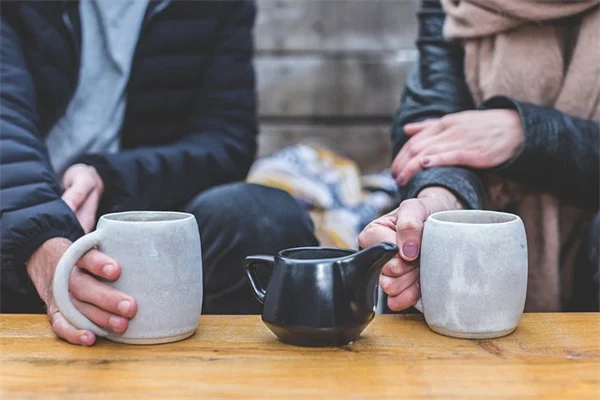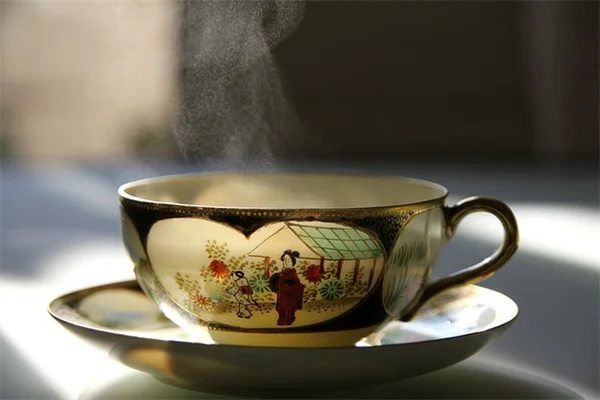Can pulling an all-nighter actually improve your mood? The answer is: Yes, but only temporarily! New research from Northwestern University shows how short-term sleep deprivation in mice triggers a dopamine surge that affects both sleep patterns and mood regulation. While we've known for years that sleep loss impacts mental health, this study finally reveals the why behind that tired but wired feeling you get after an all-nighter.Here's what's fascinating: The sleep-deprived mice showed behaviors eerily similar to college students during finals week - increased energy, hyperactivity, and even more sexual activity. But before you cancel bedtime, hear this: Experts warn these effects are temporary and chronic sleep loss does way more harm than good. The real breakthrough? This research could lead to better treatments for depression by mimicking sleep deprivation's benefits without actually losing sleep!
E.g. :Waist-to-Hip Ratio: Why It's Better Than BMI for Your Health
- 1、How Pulling an All-Nighter Messes With Your Brain Chemistry
- 2、The Surprising Link Between All-Nighters and Depression
- 3、What This Means For Your All-Nighter Habits
- 4、The Future of Depression Treatment
- 5、The Hidden Benefits of Sleep Deprivation You Never Knew
- 6、How Different Professions Harness Sleep Deprivation
- 7、The Right Way to Use Sleep Deprivation (Yes, There Is One)
- 8、The Dark Side They Don't Tell You About
- 9、FAQs
How Pulling an All-Nighter Messes With Your Brain Chemistry
That Weird "Tired But Wired" Feeling Explained
Ever stayed up all night studying for finals and noticed you suddenly feel super alert around 3 AM? That's your brain's dopamine system going haywire! A new study with sleep-deprived mice shows exactly how this works - and why it matters for humans dealing with depression or bipolar disorder.
Here's the wild part: The sleep-deprived mice started acting like college students during finals week - showing aggression, hyperactivity, and even increased sexual activity. Researchers used special dopamine-tracking tech to see how this neurotransmitter was firing differently in their brains. It's like when you chug three energy drinks and suddenly feel ready to conquer the world (or at least your laundry).
Why Dopamine Matters More Than We Thought
Dr. Jamie Zeitzer from Stanford explains it perfectly: "Dopamine is like your brain's natural energy drink - it spikes when you're awake and drops when you sleep." But here's the million-dollar question: Could we harness this effect to help people with depression?
The answer might surprise you. Some psychiatrists already use "wake therapy" - keeping depressed patients awake all night as a reset button. It works temporarily, but nobody understood why until now. The mouse study suggests dopamine is the secret sauce behind this effect.
| Sleep Status | Dopamine Activity | Observed Effects |
|---|---|---|
| Well-Rested | Normal Levels | Stable mood, regular sleep patterns |
| Sleep-Deprived | Heightened Activity | Hyperactivity, temporary mood boost |
The Surprising Link Between All-Nighters and Depression
 Photos provided by pixabay
Photos provided by pixabay
Could Missing Sleep Actually Help Some People?
Here's something that'll make you go "huh?" - about 60% of depressed patients show immediate improvement after one sleepless night. But wait, doesn't everyone say sleep is crucial for mental health? What gives?
Dr. Shelby Harris explains this paradox: "It's like rebooting your computer - sometimes you need that hard reset." The temporary dopamine surge seems to short-circuit depressive patterns. But before you cancel bedtime, remember - this effect wears off fast once you finally sleep.
The Addiction Concern That's Holding Back Research
Now here's why scientists have been nervous to explore this further. Dopamine = pleasure = potential addiction. We've seen this story before with opioids. But the Northwestern researchers believe if we can isolate just the antidepressant effects, we might develop safer treatments.
Imagine a future where instead of months of trial-and-error with antidepressants, doctors could prescribe a targeted dopamine therapy based on your sleep patterns. That's the dream this research is chasing.
What This Means For Your All-Nighter Habits
The Good, The Bad, and The Sleepy
Let's be real - pulling all-nighters regularly is terrible for you. But this research reveals why that occasional late night can feel so strangely productive. Your brain's dopamine system goes into overdrive, giving you that second wind.
Pro tip: If you must pull an all-nighter, do it strategically. The study shows the peak effects hit around 24 hours without sleep. Any longer and you're just damaging your health without extra benefits.
 Photos provided by pixabay
Photos provided by pixabay
Could Missing Sleep Actually Help Some People?
Remember those mice going hyperactive? That's your brain on too little sleep. Long-term effects include:
- Increased anxiety (no thanks!)
- Worse cardiovascular health (yikes)
- Potential mood disorder triggers (double yikes)
The takeaway? An occasional all-nighter won't kill you, but making it a habit absolutely will mess you up. Your brain needs that reset time just like your phone needs charging.
The Future of Depression Treatment
Why This Changes The Game
For 50 years, we've known dopamine affects sleep and mood but avoided targeting it directly. This research might finally crack open new treatment options for people who don't respond to traditional antidepressants.
Think about it - if we can recreate just the helpful parts of sleep deprivation without actually depriving people of sleep, we could have a breakthrough treatment for stubborn depression cases.
What's Next in Sleep Science
The researchers are now focused on answering one big question: How exactly does sleep deprivation change our brain chemistry? Once they crack that code, we could see entirely new classes of medications.
Dr. Zeitzer puts it best: "If we can isolate what's happening during those sleepless nights that helps depression, we might finally have a way to flip the switch on depression without the crash afterward." Now that's something worth losing sleep over!
The Hidden Benefits of Sleep Deprivation You Never Knew
 Photos provided by pixabay
Photos provided by pixabay
Could Missing Sleep Actually Help Some People?
You know that moment when you're exhausted but suddenly get a burst of brilliant ideas? Turns out there's science behind it! Sleep deprivation temporarily enhances divergent thinking - that's fancy talk for coming up with wild, creative solutions. Artists and writers have used this trick for centuries, and now we're starting to understand why it works.
Ever wonder why some of your best ideas come when you're dead tired? Your brain starts making connections it normally wouldn't. It's like your mental filter gets turned down, letting more unusual thoughts bubble up to the surface. Just don't expect to remember them all in the morning!
The Military's Secret Weapon: Strategic Sleep Deprivation
Here's something wild - special forces units actually train soldiers to function on minimal sleep. They've discovered that 48 hours without sleep can create a unique state of heightened awareness perfect for certain missions. Of course, they follow strict protocols to recover afterward.
Think about it - if Navy SEALs use controlled sleep deprivation as a tool, maybe there's more to this phenomenon than we realize. The key is knowing exactly when and how to use it, then giving your body proper recovery time. It's not about never sleeping - it's about strategically timing when you don't.
| Activity | With Normal Sleep | After 24 Hours Awake |
|---|---|---|
| Creative Problem Solving | Standard Solutions | More Original Ideas |
| Physical Endurance | Steady Performance | Short-Term Increase |
| Emotional Control | Stable | Heightened Sensitivity |
How Different Professions Harness Sleep Deprivation
Doctors and the "Resident's High"
Medical residents famously work crazy hours, but did you know many report a strange clarity during long shifts? It's called the "resident's high" - a state where exhaustion meets hyper-focus. While the medical field is moving away from extreme sleep deprivation, some surgeons still swear by that laser focus it provides.
Is this healthy long-term? Absolutely not. But in emergency situations where lives are on the line, that temporary boost in alertness can make all the difference. The challenge is finding ways to get those benefits without the terrible health consequences.
Tech Workers and the Hackathon Phenomenon
Silicon Valley's famous hackathons aren't just about coding - they're massive experiments in controlled sleep deprivation. Developers report entering a "flow state" where they solve problems they've been stuck on for weeks. But here's the catch - this only works if you're already deeply familiar with the problem.
Why does this work? When you're well-rested, your brain focuses on efficiency. When you're tired, it starts trying weird solutions that just might work. The key is knowing when to use this trick and when to get some damn sleep already.
The Right Way to Use Sleep Deprivation (Yes, There Is One)
Timing Is Everything
If you're going to pull an all-nighter, do it when you need creativity, not when you need precision. Need to write a poem or brainstorm marketing ideas? Maybe skip some sleep. Need to do your taxes or perform surgery? Get your eight hours.
Here's a pro tip: The sweet spot seems to be between 18-24 hours awake. Any less and you don't get the benefits. Any more and you're just a zombie. Set an alarm for when to crash - your future self will thank you.
The Recovery Protocol
Okay, so you stayed up all night and got that project done. Now what? You absolutely must prioritize recovery sleep - and not just any sleep, but quality REM sleep. That means no alarms, blackout curtains, and maybe even a sleep mask.
Did you know your brain actually prioritizes different sleep stages based on what you've missed? After deprivation, it'll grab the most important stuff first. Give it the time and space to do its job properly. Your creativity boost means nothing if you're too exhausted to implement any of those great ideas!
The Dark Side They Don't Tell You About
When the Boost Turns to Bust
Remember how we talked about that temporary high? Here's the ugly truth - it always comes with a crash. And for some people, that crash can trigger anxiety or even depressive episodes. Your brain giveth, and your brain taketh away.
How do you know if you're someone who can handle occasional sleep deprivation? If you bounce back after one good night's sleep, you're probably okay. If it takes you days to recover, maybe stick to regular sleep schedules. Listen to your body - it's smarter than any hack.
The Memory Trade-Off
Here's something scary - while sleep deprivation might boost creativity, it absolutely wrecks your ability to form new memories. That brilliant idea you had at 3 AM? There's a good chance you'll forget it by breakfast unless you wrote it down.
Fun fact: Your brain consolidates memories during sleep. No sleep means those memories never properly get stored. So if you're studying for a test, all-nighters might actually hurt more than help. The creative boost isn't worth it if you can't remember what you created!
E.g. :Is Pulling an All-Nighter Bad for You? | Houston Methodist On Health
FAQs
Q: How does sleep deprivation affect dopamine levels?
A: Here's the wild science behind it: When you skip sleep, your brain goes into survival mode and pumps out extra dopamine - that feel-good chemical that keeps you alert. The mouse study used special dopamine-tracking tech to show this exact effect. Think of it like your brain's natural energy drink! But here's the catch: This boost is temporary. Once you finally crash, your dopamine levels plummet, often leaving you feeling worse than before. Researchers believe this explains why some depressed patients temporarily feel better after all-nighters.
Q: Can staying up all night help with depression?
A: Surprisingly, yes - but only as a short-term reset. About 60% of depressed patients show immediate improvement after one sleepless night. Psychiatrists sometimes use "wake therapy" (keeping patients awake all night) as an emergency mood booster. But - and this is crucial - the effect disappears as soon as you sleep again. That's why doctors don't recommend this as a regular treatment. The new mouse study helps explain why this works (dopamine spikes!) and could lead to medications that mimic the benefit without actual sleep loss.
Q: Why are scientists cautious about dopamine treatments for depression?
A: Three little words: risk of addiction. Dopamine is the same chemical pathway involved in drug highs and addictive behaviors. As Dr. Zeitzer explains, "Whenever dopamine's involved, everyone gets nervous about creating new addiction problems." That's why research has moved toward safer antidepressants like SSRIs. But this new study might help scientists develop targeted dopamine therapies that avoid addiction risks while helping tough depression cases.
Q: How long can you go without sleep before it becomes harmful?
A: The mouse study shows peak effects around 24 hours without sleep - that's when dopamine activity is highest. But after that? Things go downhill fast. Chronic sleep loss leads to anxiety, heart problems, and can even trigger mood disorder episodes. As Dr. Harris warns, "It's like rebooting your computer - helpful occasionally, but terrible as a daily strategy." Pro tip: If you must pull an all-nighter, limit it to once in a blue moon and recover with extra sleep afterward.
Q: What's the next step for this research?
A: Scientists are now laser-focused on one question: Exactly how does sleep deprivation change brain chemistry? If they can isolate the specific dopamine mechanisms that temporarily relieve depression, we could see breakthrough medications within a decade. Imagine treatments that give you the mood boost of an all-nighter without actually losing sleep! As the researchers say, that's the holy grail they're chasing - and this mouse study just brought us one step closer.







